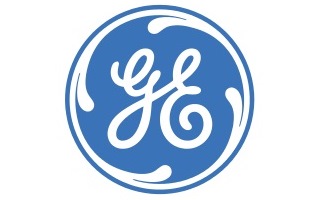As the Dow Jones Industrial Average and S&P 500 have both hit new all-time highs, earnings season is winding down. Now investors have to be wondering what will be the driving force for the rest of 2014 (and maybe what lies ahead in 2015). It turns out that the value, size and diversification of conglomerates may keep investors interested, particularly if you consider their dividends and earnings predictability ahead. Source: Wikimedia Commons
Source: Wikimedia Commons
24/7 Wall St. is taking a value approach to see what lies ahead for conglomerates in 2014, with a preview of 2015 valuations. There has been a recent misguided market pundit analysis of breaking up Berkshire Hathaway Inc. (NYSE: BRK-A). Another driving force of this review is that General Electric Co. (NYSE: GE) is about to spin off its consumer finance unit. 3M Co. (NYSE: MMM) also just hit a new all-time high on Tuesday, and United Technologies Corp. (NYSE: UTX) is within about 1% of its all-time high as well.
We have consensus price targets from Thomson Reuters, as well as considering which forward price-to-earnings (P/E) ratios will be evaluated for next year. Book value has been included for basic analysis as well, although an enterprise and franchise value matter more, considering that none of these companies are likely to ever find themselves being acquired.
General Electric Co. (NYSE: GE) has a price-to-book value of 2.05 to 1, and its market cap is almost $269.5 billion. Its forward P/E ratio is about 14.7. With a consensus target price of $28.90, GE has an implied upside exceeding 7.6% — plus there is the 3.3% yield and the upcoming spin-off to consider. GE recently closed at $26.85, and the 52-week price range is $22.62 to $28.09.
READ MORE: Companies With the Best (and Worst) Reputations
United Technologies Corp. (NYSE: UTX) trades at a price-to-book ratio of 3.37 to 1. Its market cap is $109 billion, and its forward P/E ratio for next year is just under 16. With a consensus target price of $128.80, UTC has an implied upside of 8.6%. Its dividend is only 2%. It closed at $118.63, and the 52-week trading range is $90.30 to $120.66.
3M Co. (NYSE: MMM) comes with the highest book-to-value ratio at 5.36 to 1. This sounds high, but its market cap is more than $93 billion, and it just hit a new all-time high yet again. Its forward P/E is just over 17 as well, which also sounds high. The problem behind why the valuations sound higher than GE or UTC is that 3M has been growing faster. It also has decided to be aggressive with its dividend. 3M’s consensus target price of $144.99 leaves investors thinking there is implied upside of only 1.5%. Again, it has been an outperformer. 3M also has that 2.4% dividend yield. Shares recently traded at $142.82, and the 52-week trading range is $107.15 to $143.37.
Berkshire Hathaway Inc. (NYSE: BRK-A) is perhaps the biggest wild card of the lot, in part because it is the home of Warren Buffett, and in part because analysts simply cover it far less than other conglomerates. Team Buffett trades at about 1.38 times book value, and it pays no dividend at all. Its market cap has also grown to $314 billion, making it the largest of all companies discussed here. It simply has too few analysts for earnings estimates and price targets, but GE’s stock performance has been exceeding the growth of its book value.
READ MORE: Warren Buffett’s Nine Top Dividend Stocks
So, which is best for 2014? It just feels yet again like General Electric has the most to offer investors for 2014 and into 2015. Having the consumer finance spin-off will get rid of the “bank” component of the valuation, and that means investors get a new stock AND hopefully can get a 10% increase in their P/E ratio as an industrial. GE also leads in yield and in implied upside to the consensus analyst price targets.
GE has not always been the best-performing conglomerate stock of these four. That being said, it appears to offer the best positioning of the four for investors for 2014 — and maybe into 2015.
Essential Tips for Investing: Sponsored
A financial advisor can help you understand the advantages and disadvantages of investment properties. Finding a qualified financial advisor doesn’t have to be hard. SmartAsset’s free tool matches you with up to three financial advisors who serve your area, and you can interview your advisor matches at no cost to decide which one is right for you. If you’re ready to find an advisor who can help you achieve your financial goals, get started now.
Investing in real estate can diversify your portfolio. But expanding your horizons may add additional costs. If you’re an investor looking to minimize expenses, consider checking out online brokerages. They often offer low investment fees, helping you maximize your profit.
Thank you for reading! Have some feedback for us?
Contact the 24/7 Wall St. editorial team.



